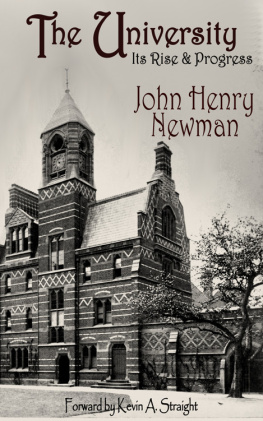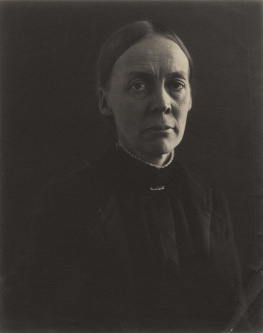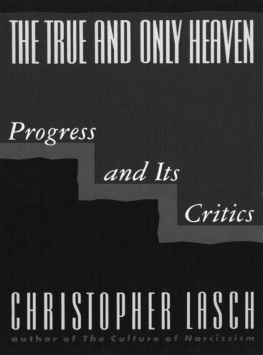Adams Henry - A road to nowhere: the idea of progress and its critics
Here you can read online Adams Henry - A road to nowhere: the idea of progress and its critics full text of the book (entire story) in english for free. Download pdf and epub, get meaning, cover and reviews about this ebook. City: Philadelphia, year: 2018, publisher: University of Pennsylvania Press., genre: Politics. Description of the work, (preface) as well as reviews are available. Best literature library LitArk.com created for fans of good reading and offers a wide selection of genres:
Romance novel
Science fiction
Adventure
Detective
Science
History
Home and family
Prose
Art
Politics
Computer
Non-fiction
Religion
Business
Children
Humor
Choose a favorite category and find really read worthwhile books. Enjoy immersion in the world of imagination, feel the emotions of the characters or learn something new for yourself, make an fascinating discovery.

- Book:A road to nowhere: the idea of progress and its critics
- Author:
- Publisher:University of Pennsylvania Press.
- Genre:
- Year:2018
- City:Philadelphia
- Rating:4 / 5
- Favourites:Add to favourites
- Your mark:
- 80
- 1
- 2
- 3
- 4
- 5
A road to nowhere: the idea of progress and its critics: summary, description and annotation
We offer to read an annotation, description, summary or preface (depends on what the author of the book "A road to nowhere: the idea of progress and its critics" wrote himself). If you haven't found the necessary information about the book — write in the comments, we will try to find it.
A road to nowhere: the idea of progress and its critics — read online for free the complete book (whole text) full work
Below is the text of the book, divided by pages. System saving the place of the last page read, allows you to conveniently read the book "A road to nowhere: the idea of progress and its critics" online for free, without having to search again every time where you left off. Put a bookmark, and you can go to the page where you finished reading at any time.
Font size:
Interval:
Bookmark:
A Road to Nowhere

The Idea of Progress and Its Critics
Matthew W. Slaboch

Copyright 2018 University of Pennsylvania Press
All rights reserved. Except for brief quotations used
for purposes of review or scholarly citation, none of this
book may be reproduced in any form by any means without
written permission from the publisher.
Published by
University of Pennsylvania Press
Philadelphia, Pennsylvania 19104-4112
www.upenn.edu/pennpress
Printed in the United States of America on acid-free paper
10 9 8 7 6 5 4 3 2 1
A Cataloging-in-Publication record is available
from the Library of Congress.
ISBN 978-0-8122-4980-4
For my family
and to the memory of my father, Ronald W. Slaboch (19462016)

A Road to Nowhere

In 2008, Barack Obama campaigned for the American presidency on a message of hope and change. Decades earlier, Ronald Reagan conveyed the same sort of optimism, envisioning for citizens a bright and sunny future: it was morning in America. No doubt Obama, Reagan, and the countless other politicians who have promised better days ahead believed sincerely that the future looked bright. And why shouldnt they? Americans, living in a country that was founded at the height of the Enlightenment, are conditioned to accept certain principles, not the least of which is a belief in progress. This idea was put forth eloquently in a Fourth of July oration by James Wilson, a signatory of the Declaration of Independence and one of the original justices of the U.S. Supreme Court: A progressive state is necessary to the happiness and perfection of man. Whatever attainments are already reached, attainments still higher should be pursued. Let us, therefore, strive with noble emulation. Let us suppose we have done nothing, while any thing yet remains to be done. Let us, with fervent zeal, press forward, and make unceasing advances in every thing that can support, improve, refine or embellish society. Wilson concludes his speech by predicting unceasing advances not only in agriculture, commerce, and industry, but also in the arts, virtue, and liberty. As a piece of oratory, Wilsons speech is outstanding, with few to rival it. But the message of that speech is hardly unique: from the founding moment to the election and subsequent reelection of President Obama, the idea of progress has found common currency in American politics and society.
Obamas successful presidential bids are not the only testament to the fact that progress retains strong rhetorical and political appeal in the twenty-first century. Hillary Clinton and Bernie Sanders, seeking to capture the Democratic Partys nomination to succeed Obama as president, largely eschewed the term liberal, battling instead over which candidate was the true progressive. And on both the left and the right, proponents of this or that policy routinely accuse their opposition of being on the wrong side of history, implying that historical change is unidirectional, a move from worse to better.
Although not on the ballot, Obama made the 2016 presidential election a referendum on himself and his reforms. On election eve, he told a crowd in Michigan that tomorrow, you will choose whether we continue this journey of progress, or whether it all goes out the window. And on election day, a plurality of Michigan voters went to the polls to do precisely what Obama had asked them not to do: help ensure that Donald Trump became the forty-fifth president of the United States of America.
In elevating Trump to the presidency, voters repudiated a third Obama term. Whether they likewise rejected the idea of progressor merely Obamas vision of progressis a matter for contestation. Candidate Trump made waves during the 2016 election with his gloomy portrayals of the everyday lives of Joe and Jane Q. Citizen; Hillary Clinton, his chief opponent in the general election campaign, derided him for painting a picture of midnight in America rather than morning in America.
If pessimism is en vogue in the United States, it is no less so in Europe. To its many defenders, the European Union (EU) is a postWorld War II success story, an enterprise responsible for bringing peace and prosperity to a conflict-ridden region. But in a 2015 survey of citizens from nine EU member states, nearly three-quarters of respondents felt that the Union is moving in the wrong direction. The ambition of ever closer union is uncertain. In place of widening, the process by which the EUs borders are expanded to include new member states, we see contraction, following the UKs June 2016 plebiscite on EU membership. In response to deepening, the process by which an increasing number of decisions are decided at the EU level rather than left to individual states, we see a resurgent nationalism.
Europeans, however, are not merely dissatisfied with the EU; they are also dismayed with the directions their respective countries are taking. A 2016 survey showed that more than 60 percent of citizens in the UK, nearly 70 percent of Germans, more than 80 percent of Spaniards, Italians, and Hungarians, and almost 90 percent of Frenchmen felt that their countries were on the wrong track.
Even if Americans and Europeans were more bullish in forecasts of the future for their homelands, events of the preceding century should force us to reconsider our faith in the continued improvement of humankind as a whole. World War I, early in the century, was soon followed by the rise of fascism in Germany and Italy and communism in Russia. World War II was followed by conflicts in Korea and Vietnam, genocide in Cambodia, and the spread of communism across Eastern Europe and parts of Asia. To cap off the century, violent nationalism tore the Balkans asunder and genocides ravaged Rwanda and Sudan. The possibility that long-term, continued progress might be merely a dream is something people in general and political theorists in particular must consider.
If we look to the canon of political theory, we see that it is filled with historical optimists; skeptics, pessimists, and theorists of decline are exceptional. Modern political thought, in particular, is dominated by thinkers who believe that history tells a tale of progress; such thinkers may not share Gottfried Leibnizs view that ours is the best of all possible worlds, but they do think the world can become better. Among such theorists was the Marquis Figures as distinct as Adam Smith, Immanuel Kant, John Stuart Mill, G. W. F. Hegel, Karl Marx, and the American founders likewise found cause to trust in future progress. The belief that humans are capable of making lasting improvementsintellectual and scientific, material, moral, and culturalis a commonplace of our age.
To be sure, some brave souls have dared to consider the possibility that progress is more fiction than reality. I contend in this book that we can learn from such thinkers. The figures I have in mind come from the worlds of philosophy (Arthur Schopenhauer, Oswald Spengler), fiction (Leo Tolstoy, Aleksandr Solzhenitsyn), and professional history (Henry Adams, Christopher Lasch). These thinkers are hardly marginalnumbered among them are indisputable masters of their respective crafts, including a Pulitzer Prize winner (Adams) and a Nobel laureate (Solzhenitsyn)but they are generally relegated to the margins in works by political theorists. Convinced that they are of more worth to political theory than a passing mention or a footnote, I bring them to the forefront by presenting their arguments against historical optimism. To show that these naysayers were not mere defeatists, I also highlight their varied prescriptions for individual and social action.
Next pageFont size:
Interval:
Bookmark:
Similar books «A road to nowhere: the idea of progress and its critics»
Look at similar books to A road to nowhere: the idea of progress and its critics. We have selected literature similar in name and meaning in the hope of providing readers with more options to find new, interesting, not yet read works.
Discussion, reviews of the book A road to nowhere: the idea of progress and its critics and just readers' own opinions. Leave your comments, write what you think about the work, its meaning or the main characters. Specify what exactly you liked and what you didn't like, and why you think so.






